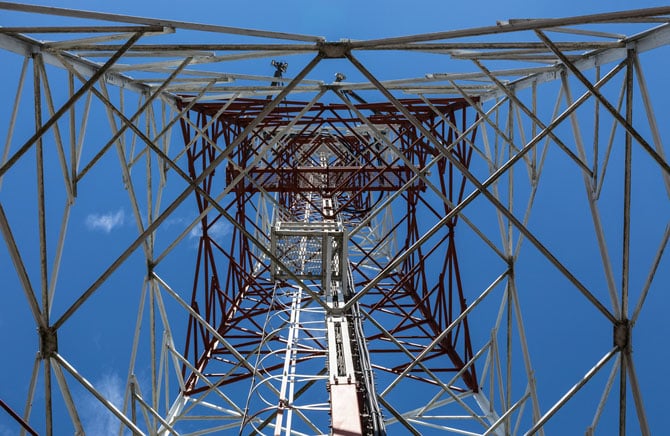Vodafone And Amazon Shoot For The Stars While Kuiper Satellites Remain Grounded

Vodafone has linked arms with Amazon's Project Kuiper to extend 4G and 5G services to more regions in Europe and Africa, despite Jeff Bezos' satellite constellation still lacking any spacecraft in orbit.
A Vodafone Group spokesperson told The Register it foresees two scenarios: "One where we use Kuiper's LEO satellites to provide the link between the mobile base station and our core network (and then onto the Internet). It is particularly useful in underserved and unserved areas where a physical fibre or microwave link is not feasible. This is essentially mobile backhaul.
"The other is where a customer plugs a Kuiper terminal into a WiFi router and then connects to the router like normal."
Both scenarios negate the need for building prohibitively expensive fiber networks or implementing fixed wireless links.
Vodafone Group chief executive Margherita Della Valle said that the company's work with Project Kuiper "will provide mobile connectivity to many of the estimated 40 percent of the global population without internet access."
Dave Limp, Amazon's senior vice president for devices and services, said the network "means we can connect places that have traditionally been difficult to reach."
Project Kuiper is due to get its first prototype satellites into orbit in the coming months, with a view to deploying production satellites in 2024 and trialing Project Kuiper services – with select customers, including Vodafone – by the end of 2024.
- The only thing launched for Amazon's Project Kuiper is a lawsuit
- Amazon sets up shop at Kennedy Space Center to prep Kuiper broadband satellites
- OneWeb lofts last batch of satellites to enable global internet service
- SpaceX tries to de-orbit Amazon's request for a satellite broadband shortcut
Vodafone Group has its fingers in several other space-based network pies. It has also partnered with AST SpaceMobile, which is building a space-based cellular network accessible directly from standard mobile phones. The company launched its BlueWalker 3 satellite in September 2022 on a SpaceX Falcon 9 and plans to use SpaceX to launch its operational satellites in 2024.
SpaceX appears to be ahead of Project Kuiper on the connectivity front. It announced plans with T-Mobile in 2022 to deliver cellular coverage directly from its satellites. In July, SpaceX pressed [PDF] the US Federal Communications Commission (FCC) to authorize its application for direct-to-cellular coverage as part of its second-generation system.
Other providers have been left irked by the SpaceX approach. In August, Omnispace, a satellite constellation operator, wrote to the FCC expressing concern about interference from the proposed SpaceX and T-Mobile service, and alleging errors in SpaceX's calculations regarding that interference.
Elon Musk's space biz has more than 4,000 Starlink satellites in orbit, including 21 launched on a Falcon 9 at the weekend.
In the meantime, Project Kuiper's tie-up with Vodafone Group is evidence that somebody at least believes that Jeff Bezos' fleet of broadband birds will one day become a reality. Even if Elon Musk's Starlink satellites already number in the thousands. An Amazon spokesperson told us: "The claims in this lawsuit are completely without merit, and we look forward to showing that through the legal process." ®
From Chip War To Cloud War: The Next Frontier In Global Tech Competition
The global chip war, characterized by intense competition among nations and corporations for supremacy in semiconductor ... Read more
The High Stakes Of Tech Regulation: Security Risks And Market Dynamics
The influence of tech giants in the global economy continues to grow, raising crucial questions about how to balance sec... Read more
The Tyranny Of Instagram Interiors: Why It's Time To Break Free From Algorithm-Driven Aesthetics
Instagram has become a dominant force in shaping interior design trends, offering a seemingly endless stream of inspirat... Read more
The Data Crunch In AI: Strategies For Sustainability
Exploring solutions to the imminent exhaustion of internet data for AI training.As the artificial intelligence (AI) indu... Read more
Google Abandons Four-Year Effort To Remove Cookies From Chrome Browser
After four years of dedicated effort, Google has decided to abandon its plan to remove third-party cookies from its Chro... Read more
LinkedIn Embraces AI And Gamification To Drive User Engagement And Revenue
In an effort to tackle slowing revenue growth and enhance user engagement, LinkedIn is turning to artificial intelligenc... Read more

